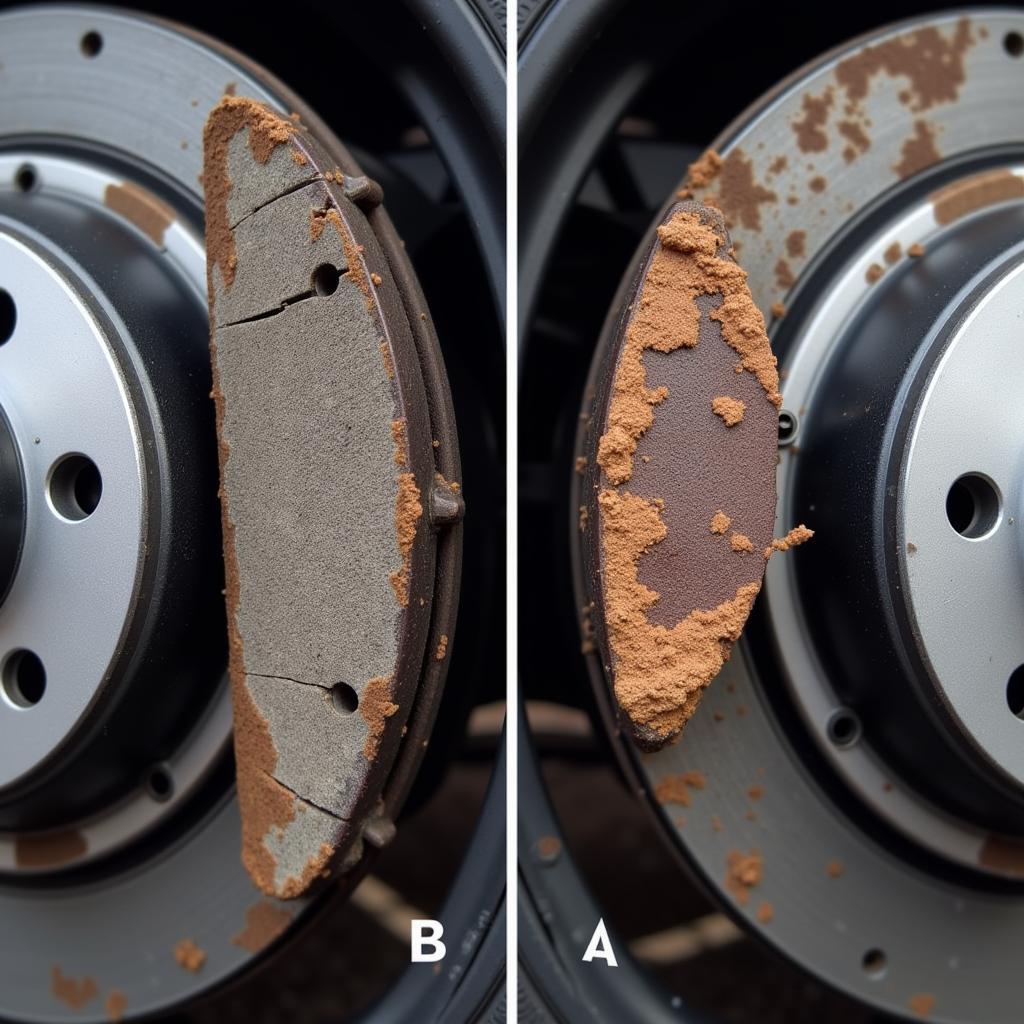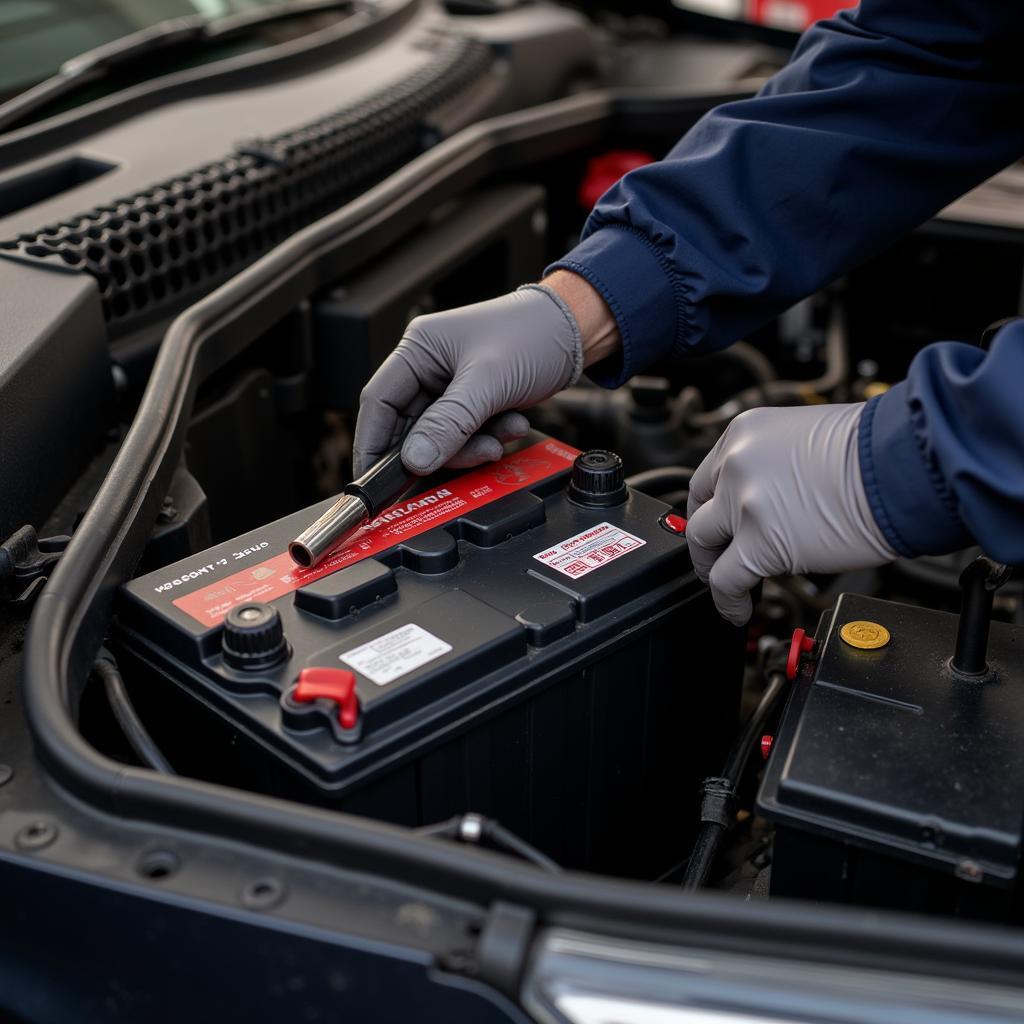The Ford Focus brake warning light can be a jarring sight, signaling potential issues with your braking system. Understanding why this light illuminates and knowing how to troubleshoot it is crucial for maintaining safety and preventing costly repairs. This comprehensive guide delves into the common causes, diagnostic techniques, and solutions for addressing the Ford Focus brake warning light.
Common Causes of the Ford Focus Brake Warning Light
Several factors can trigger the brake warning light in your Ford Focus. These range from simple issues like low brake fluid to more complex problems requiring professional attention. Identifying the underlying cause is the first step towards resolving the issue.
-
Low Brake Fluid: This is the most common culprit. Low brake fluid often indicates a leak somewhere in the braking system, which needs immediate attention.
-
Worn Brake Pads: Brake pads are designed to wear down over time. When they reach a critical thickness, a sensor triggers the warning light.
 Worn Brake Pads on a Ford Focus
Worn Brake Pads on a Ford Focus -
Faulty Brake Sensor: Sometimes, the brake pad sensor itself can malfunction, triggering the warning light even when the brake pads are still in good condition.
-
ABS Issues: A problem with the Anti-lock Braking System (ABS) can also activate the brake warning light. This could indicate a faulty ABS sensor, module, or pump.
-
Parking Brake Engaged: While seemingly obvious, sometimes the parking brake can be partially engaged, causing the light to stay on.
Diagnosing the Ford Focus Brake Warning Light
Troubleshooting the brake warning light involves a systematic approach to identify the root cause.
- Check the Parking Brake: Ensure the parking brake is fully disengaged.
- Inspect Brake Fluid Level: Check the brake fluid reservoir. If it’s low, top it off with the correct type of brake fluid specified in your owner’s manual. If the fluid level drops again quickly, suspect a leak.
- Inspect Brake Pads: Visually inspect the brake pads through the wheel spokes. If they appear thin, have them measured by a mechanic.
Solutions for the Ford Focus Brake Warning Light
Depending on the diagnosed cause, various solutions can be implemented.
- Adding Brake Fluid: If the fluid is low, add the correct type and have the system inspected for leaks.
- Replacing Brake Pads: Worn brake pads need to be replaced promptly to ensure safe braking performance.
- Replacing Brake Sensors: If a faulty sensor is identified, it needs to be replaced.
- Addressing ABS Issues: ABS problems require specialized diagnostic equipment and expertise, so consult a qualified mechanic.
Remote Diagnostics and Software Solutions
As an expert in automotive electrical engineering specializing in remote diagnostics, programming, and software installation, I can offer remote solutions for certain brake warning light issues. These can include diagnosing ABS faults, resetting warning lights after repairs, and even performing software updates related to the braking system. Contact a qualified remote diagnostics specialist for assistance.
“Regular brake maintenance is crucial for preventing major issues. Ignoring the brake warning light can lead to expensive repairs and compromise safety,” advises John Miller, Senior Automotive Electrical Engineer at AutoTech Solutions.
When to Seek Professional Help
While some issues can be addressed by the car owner, more complex problems, such as ABS faults or persistent brake fluid leaks, necessitate professional help. “Don’t hesitate to seek professional help if you’re unsure about anything related to your brakes. It’s better to be safe than sorry,” adds Maria Sanchez, Lead Technician at Brake Experts Inc.
Conclusion
The Ford Focus brake warning light serves as a vital indicator of potential braking system problems. By understanding the common causes, utilizing diagnostic techniques, and implementing appropriate solutions, you can maintain a safe and reliable vehicle. Don’t ignore this warning – address it promptly to ensure your safety and prevent costly repairs.
FAQ
- What does the Ford Focus brake warning light mean? It indicates a potential issue with your braking system, such as low brake fluid, worn brake pads, or an ABS problem.
- Can I drive with the brake warning light on? It’s not recommended. Driving with a potential brake problem can compromise safety.
- How do I check my Ford Focus brake fluid level? Locate the brake fluid reservoir in the engine bay and check the fluid level against the minimum and maximum markings.
- How often should I change my Ford Focus brake pads? Brake pad life varies depending on driving habits, but generally, they should be inspected every 12,000 miles.
- How much does it cost to fix a Ford Focus brake warning light issue? The cost depends on the underlying cause and can range from a simple fluid top-up to more expensive repairs like replacing brake components.
- Can I reset the Ford Focus brake warning light myself? Sometimes, the light resets after the issue is fixed. However, for more complex problems, professional diagnostic equipment may be required.
- What is the importance of regular brake maintenance? Regular maintenance helps identify potential problems early on, preventing costly repairs and ensuring optimal braking performance.

